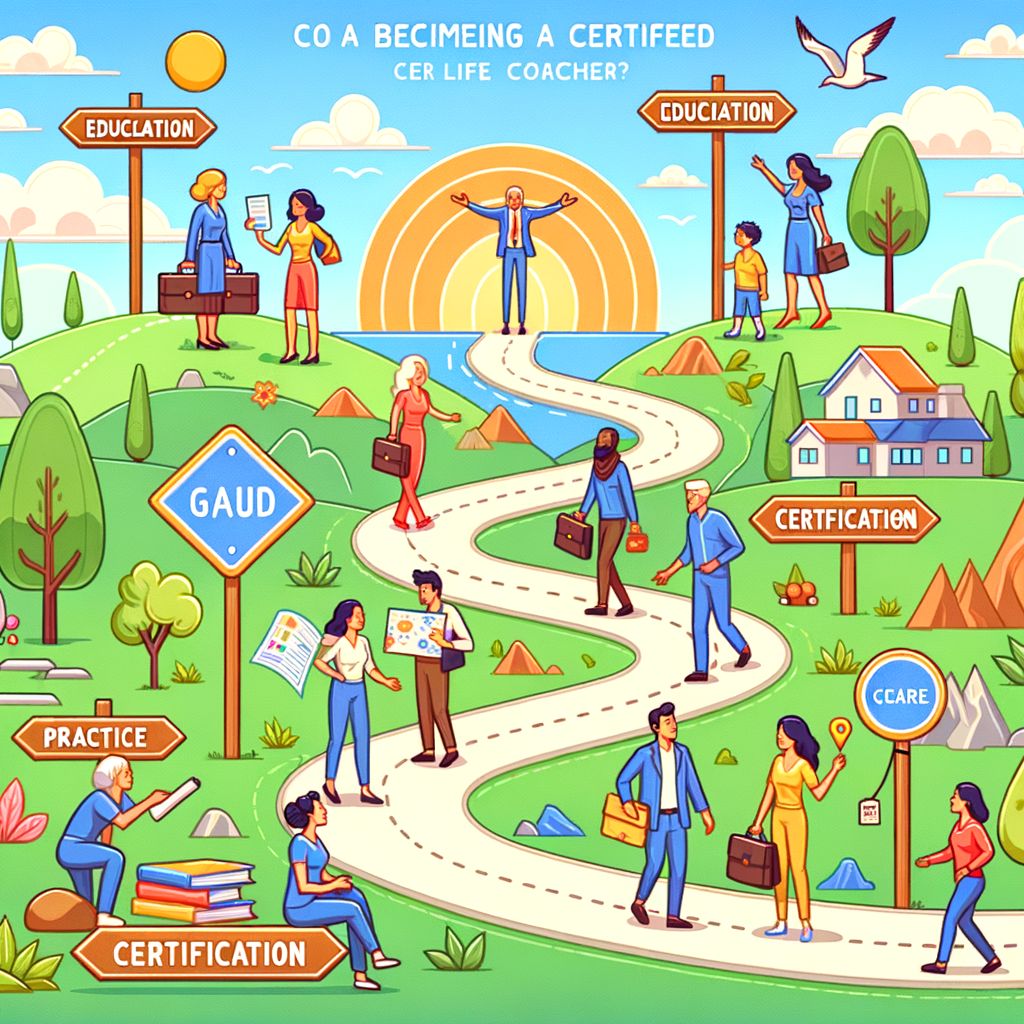The interest in life coaching as a professional path has soared dramatically over recent years—and for good reasons! Life coaching offers individuals a meaningful, purposeful career where they can make a tangible impact on others’ personal lives and professional journeys. If you’re researching the roadmap to become a successful, certified life coach, you’re in the right place. In this comprehensive guide, we’ll walk you step-by-step through the essentials of becoming a certified life coach, and help you transform your passion into a lucrative, fulfilling career.
What Exactly Does a Certified Life Coach Do?
Before taking the leap into certification programs, understanding what really goes into being a life coach is fundamental. A life coach is essentially someone who helps clients achieve personal or professional goals, overcome unsolvable-seeming challenges, and discover new opportunities for success and fulfillment. Life coaches are gifted listeners, supportive mentors, and experts in human interpersonal dynamics. Their job is to empower individuals by providing clarity, motivation, support, and accountability.
5 Powerful Reasons to Become a Certified Life Coach
- Impact Lives Positively: Make a tangible difference in people’s personal lives and careers.
- Diverse Opportunities: Work with individuals, teams, corporations, or online—through partnership, collaborations, or in private practices.
- Continuous Personal Growth: Every coaching engagement offers learning and self-development.
- Flexible Career Paths: Work anywhere, choose your clients, and set your own schedule.
- High Demand: Recognized by Forbes as one of the fastest-growing professional fields.
Essential Steps for Becoming a Certified Life Coach
Step 1: Understand Your Own Goals and Motivations
Your first step toward a life coaching journey involves introspection. Why do you want to become a life coach? Are you genuinely identified with helping others? Understanding your’why’ will significantly enhance your authenticity and certification journey.
Step 2: Complete a Reputable Coach Training Program
Choose a recognized program accredited by widely acknowledged coaching bodies such as the International Coaching Federation (ICF) or the Association for Coaching (UK). Completing training through accredited organizations establishes credibility with future clients and employers, putting you ahead of competition.
Step 3: Hone Your Skills and Earn a Certification
After attending and completing certified classes, you’ll often need to undertake practical coaching hours to fully immerse yourself into professional coaching. From coaching methodology to practical training hours, perfecting your skills builds confidence and ensures you’ll provide optimal value to your clients.
Step 4: Engage with Communities and Platforms
Now you have the basics down, it’s essential to interact with other life coaches, communities, or online spaces to help in your ongoing professional growth. One great place to start is by signing up at the Truly App. It’s an innovative, user-friendly platform designed to connect coaches with a wide variety of clients. With Truly, you instantly gain visibility, access essential tools to engage sequentially and effectively with clients, and create lasting empowerment experiences.
You can also learn further practices and valuable insights by exploring our extensive coaching resource—check out our Ultimate Guide to Coaching.
Step 5: Launch Your Coaching Business or Career
Taking action toward founding your coaching practice or joining reputable coaching organizations and platforms, like Truly, ensures continual growth and steady success. Position yourself effectively with clear branding and establish your unique proposition that accurately reflects your coaching philosophy.
Key Qualities and Skills Every Certified Life Coach Should Have
- Empathy: Ability to deeply understand clients’ experiences.
- Effective Communication: Both in speaking clearly and in active, unconditional listening.
- Problem-solving: Thinking strategically to help clients find tangible solutions.
- Accountability: Motivating clients to follow their goals conscientiously.
- Adaptability: Comfortably handle a wide variety of situations and personalities.
No matter how successful you become, continual learning and self-improvement are vital in the coaching profession. For specific advice on developing your skills, visit our comprehensive Life Coach Guide that covers vital skills and transformation techniques every life coach must know.
Your Path to Empowerment Starts Here
Choosing the right tools and networks to accompany your coaching certification journey greatly facilitates your professional growth. The path to becoming a certified life coach can be challenging, but your passion for enriching lives will enable you to continually grow, enhance lives, and build a satisfying career.
Take the first step today—visit jointruly.com to start connecting and empowering others, showcase your coaching skills, and grow your life coaching career leap-and-bound. Think you’re ready to start your journey? Let’s take this empowering ride together!

